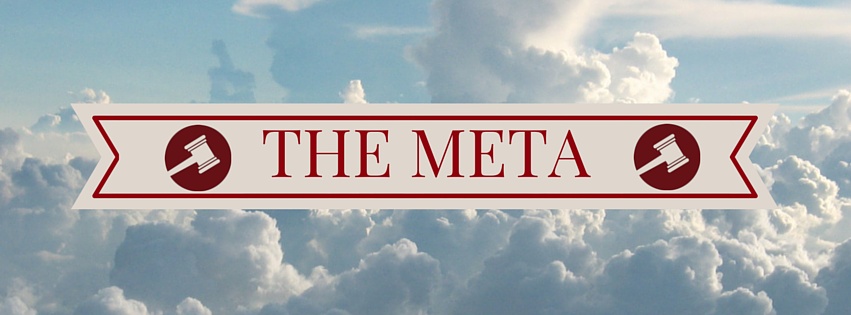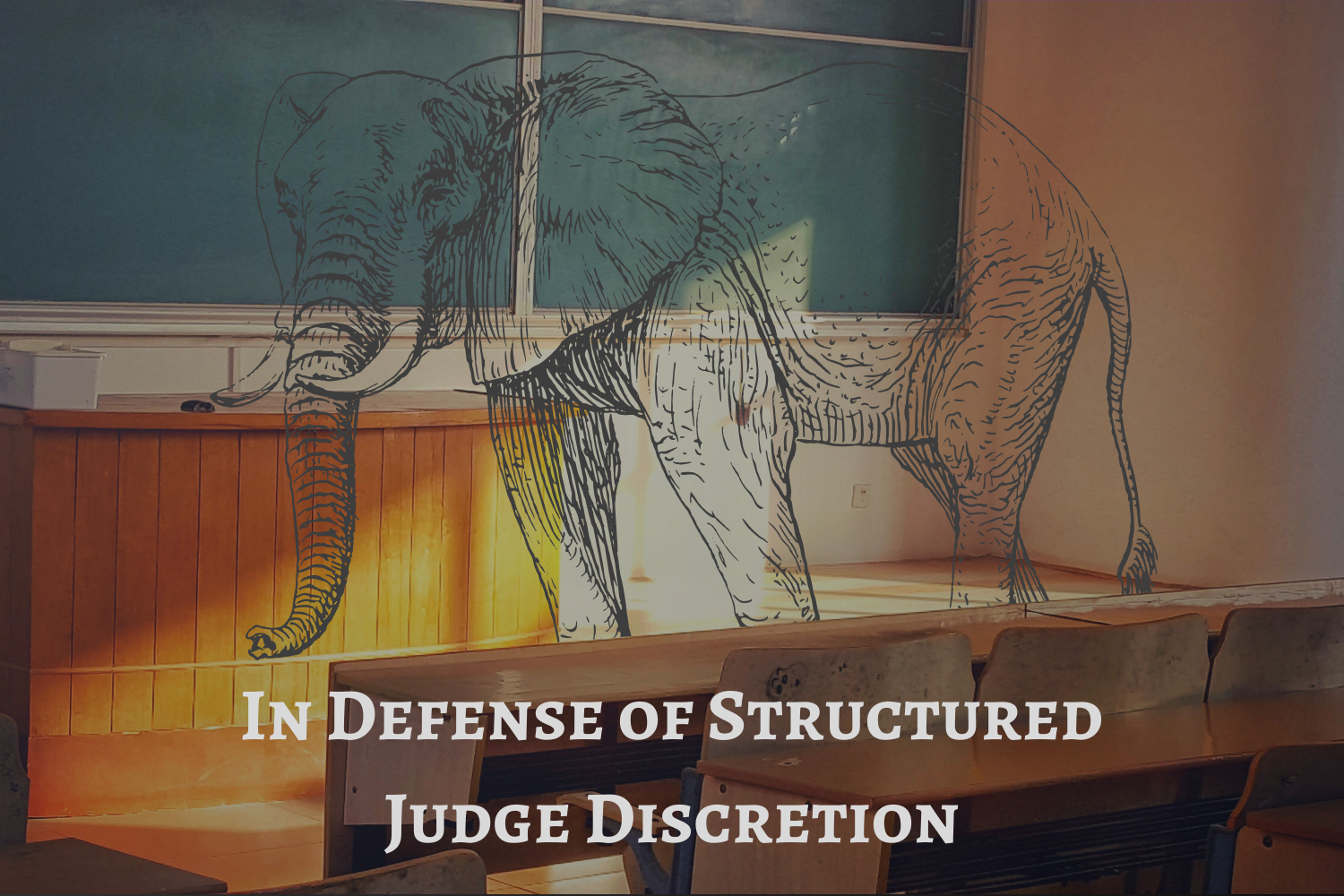Theory Spikes, Meta-Theory and Embedded Clash by Bob Overing

Theory Spikes, Meta-Theory and Embedded Clash: A Case Study of Kinkaid TG v Brentwood JL
In an octas debate at Meadows 2014, Kinkaid TG affirmed against Brentwood JL. The aff read a theory spike in the AC something along these lines:
Aff Outweighs: If the aff and neg both have offense on a particular layer of the debate, grant that the aff offense outweighs to compensate for neg side bias.
By the end of the debate, the neg had handily won several theory arguments but had dropped the spike in both the NC and 2NR. The aff had won some amount of offense against the theory arguments (meeting the burden set up by the spike) and extended the spike in both the 1AR and 2AR, claiming that the aff is now ahead on each theory flow by virtue of having some amount of offense.
The neg won on a 2-1. Shayne Walton and Adam Bistagne voted neg, and I voted aff. My decision was fairly simple: the neg conceded that all weighing goes to the aff. Even if the neg was completely crushing the theory debate, (even if I’m 99% confident in his theory interpretations), there’s at least some amount of aff offense, and in that case, according to the Aff Outweighs spike, I vote aff.
Adam’s decision went a little differently. He argued that even though the aff extended a conceded spike, the neg was so far ahead on theory that the justification for the aff spike, “to compensate for neg side bias,” relied on an impact that was clearly outweighed. The marginal time skew that affects the aff is far less severe than unfairness of the aff case as successfully argued by the neg.
So, who’s right?
I suspect most debaters who rely on tricks, one-liners, hidden burdens, and the like would prefer my decision. Most debaters who want to catch the tricks and oust them with theory (or debaters who can’t flow) would prefer Adam’s.
There are two good reasons for thinking my decision is correct. (1) The aff is the only one who makes a comparative argument between the neg’s theory offense and the aff theory spike. To grant that the neg outweighs would be to insert a weighing argument in favor of the neg when the aff has already made a weighing argument. Of course, the aff’s weighing argument is very general to all neg theory, but it’s a weighing argument nonetheless. This impulse is in line with judges who want to be completely tabula rasa. (2) Aff Outweighs could be interpreted as a burden or a meta-theory argument. The spike claims that there is a specific burden the aff must fulfill to win a theory debate, and if it meets its burden, then you vote aff. In this way, the spike is “meta-theoretical” because it makes a claim about theory arguments. Some might have it that any “meta-theoretical” discussion must be resolved before any lower layer.
To deny (1), one could argue against the extremely radical take on tabula rasa. Simply because the word “outweighs” is used does not mean the aff has won the debate on that flow. The strategic implications of such a view would have debaters claiming “x outweighs for y nonsense reason” at every opportunity, which is absurd. On this view, judges should take into account the strength of the debaters’ arguments and the link to the impact they’re claiming outweighs. A very abstract “ground outweighs” argument doesn’t win a theory debate any more than simply saying “my impact is high probability” wins an advantage-vs-disadvantage debate. Certainly, debaters should make the argument that vacuous weighing is vacuous, but should they have to for judges to evaluate the debate this way?
Responding (2) seems less complicated. Adam’s decision explained that the Aff Outweighs spike and the neg theory argument link to the same impact: fairness. So, it’s within the judge’s purview to decide that the size of the neg’s impact can outweigh the size of the aff’s just as (s)he would in any other context. Even if the neg did not explicitly attack the spike, the neg’s theory argument has “embedded clash” with the aff spike. This line also deflates “meta-theoretical” nature of the spike, but maybe it should be presumed “meta-theoretical” if no arguments are made. Consider a variant of the cross-examination checks spike:
CX Checks: The neg may not read a theory argument without reading the interpretation in CX to ask me if I might modify my advocacy to comply with their interpretation. We should do this to avoid unnecessary theory debates.
Is CX Checks more obviously “meta-theoretical” than Aff Outweighs? Such an assumption would mean major ramifications on the neg’s ability to win a theory debate. Further, it might be even less tabula rasa to assume the spike is “meta-theoretical” if it’s not argued. I made a similar assumption in the octas debate at Meadows.
In the case of a dropped CX Checks spike where the neg does not meet, I think most judges would exclude the neg’s theory argument on face. However, if Adam is right, a handily-won neg theory argument might just outweigh the impetus for accepting CX Checks, dropped or not. If the neg convinces us to care more about his/her theory argument than we do about CX Checks, then why prefer the one-liner to the fully developed theory argument?
Finally, a pragmatic reason to adopt Adam’s view is that it might lessen the impact of short (hidden, vague, tricky, etc.) aff theory spikes, a goal most of us can agree upon.
Comment below your thoughts on these cases. Whose decision was more tab (and should judges be quite so tab)? Are the spikes meta-theoretical (and does meta-theory come first)? Are these aff spikes good debate practice?
.

.
.
Bob co-directs Premier Debate, coaches his alma mater Loyola High School and debates on the NDT/CEDA circuit for the USC Trojan Debate Squad. His students earned 32 TOC bids in his first two years coaching. As a senior at Loyola, Bob earned 11 bids and was a TOC finalist.



5 Comments
For me, the neg would have to articulate reasons why them reading the interp un-checked is preferable to them checking it in CX, which I doubt would hold up, since the idea of abuse going away without much of a skew, except for in CX time, is very appealing. In my eyes, it’s very hard to win CX checks bad. Even if the probability of the aff complying is low, the potential solvency of the abuse makes it quite desirable. Many people say it skews CX time, but if there was actually abuse in the first place, the neg would probably be inclined to spend their time asking about the abusive arguments in order to better develop their theory position in the 1NC.
The impacts of the shell that the neg hypothetically reads are probably greater in magnitude than the impacts to fairness or education against the aff by running theory without checking, but the possibility of BOTH of those instances of abuse (aff abuse on neg b/c of abusive argument, neg abuse on aff by not checking) going away or being precluded would still seem to be preferable.
It doesn’t make a lot of sense to me to vote aff if the neg is “handily” winning several arguments. The affs spike seems to rely on the importance of the distinction between truth and tech. Imagine a situation where the aff is winning a slight risk of a living wage reducing poverty, but the neg is winning that the unemployment effects would vastly outweigh the benefits of poverty reduction. In this case, it seems like the affs spike would demand you to vote on an argument that’s patently false (in that debate round). How does the time bias change the fact that you’re losing a link turn?
“But substance is different than theory…”
1) I don’t think that denies the validity of my argument.
2) My argument can just as easily be applied to theory. If the aff is winning that their interpretation is slightly more predictable, but the neg wins that it massively underlimits the topic and explains the impacts of that, I am not sure how you can ignore this simply because the aff says “vote for me because im aff…” which is essentially what this time bias argument is. voting on this requires you to basically ignore every argument made in the debate and just see if there is some aff offense, this just doesn’t seem to be a good model of debate to me.
More generally, I hate the way time bias arguments are being implemented in debate. Yes, there is probably some time bias that makes the 1ar/2ar a little harder, but the way debaters are using these arguments essentially sound like “don’t make me formulate a strategy or make me answer arguments, i only have 4 minutes and im going to spend 30 seconds of that time explaining why it’s hard to affirm instead of answering arguments.”
This weighing argument would be much more convincing if it were framed like “err aff on the theory debate as tiebreaker – if the theory debate is close and we are both winning offense, you should grant me leeway since the neg can collapse on theory in the 2nr.” but to say that you should vote aff if the aff wins a slight amount of offense, while ignoring the offense the neg has, just seems very strange/not good to me.
I think your argument shows that TGamble’s original argument was false. Given that Jackson concedes this argument is true, I’d have to agree with Bob that it’s more tab to affirm. I understand where you’re coming from though; we all draw the line for unwarranted arguments somewhere. I think it’d be cool if there was some explanation for where we should draw it. Sometimes I get the feeling judges use communal norms to decide, but that probably ends up privileging the arguments promulgated at camps.
I don’t disagree at all that it’s more tab to affirm. I think my argument stems from my fundamental belief that judges can’t (or perhaps shouldn’t) be “a blank slate” in the purest sense. Conciously, or unconsciously, all judges have biases on certain arguments. I think that’s why judge paradigms are so important, and should be taken seriously by judges because that’s one of the only ways debaters truly know what kind of beliefs/biases that judges may have.
I agree that it’s impossible to be tab in the purest sense, but not treating dropped arguments as true seems to be knocking the bar down a few pegs. Why shouldn’t we be maximally tab when we’re conscious that we can?